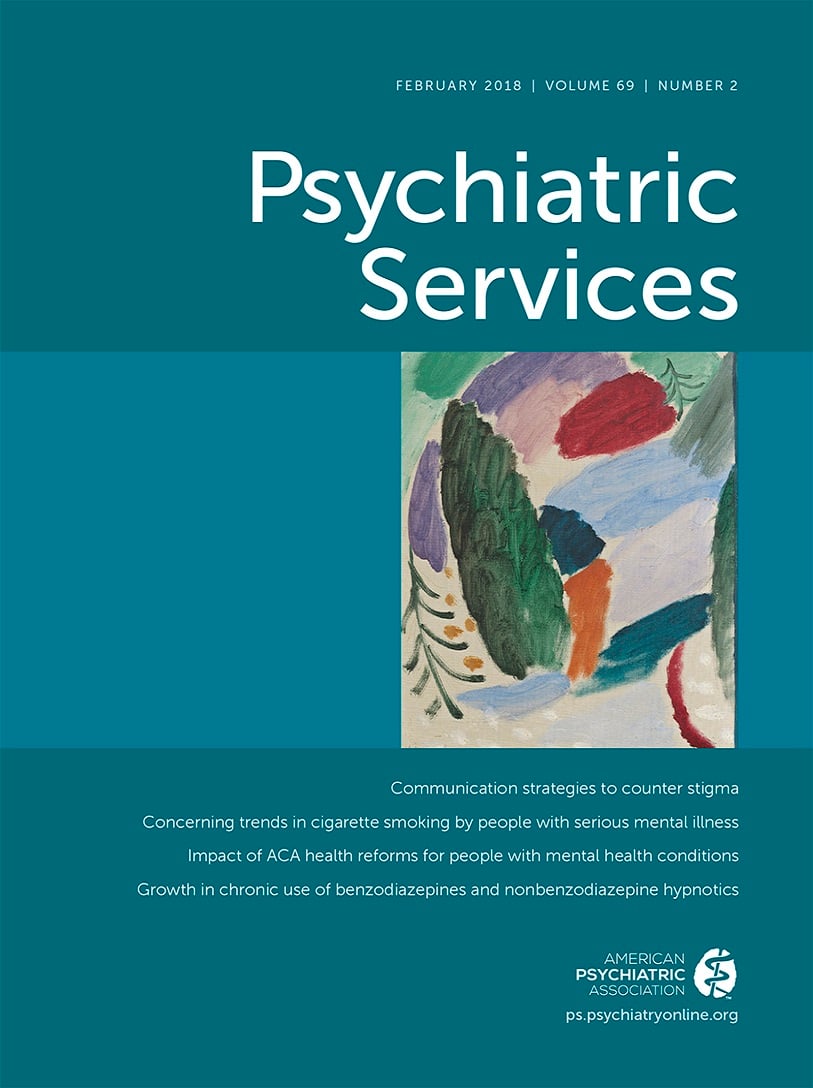Communication Strategies to Counter Stigma and Improve Mental Illness and Substance Use Disorder Policy
Abstract
Formats available
You can view the full content in the following formats:
Information & Authors
Information
Published In

Cover: Frosty Day, by Alexej von Jawlensky, 1915. Oil on paper on cardboard; 10½ by 14 inches. Gift of Benjamin and Lillian Hertzberg, National Gallery of Art, Washington, D.C.
History
Keywords
Authors
Funding Information
Metrics & Citations
Metrics
Citations
Export Citations
If you have the appropriate software installed, you can download article citation data to the citation manager of your choice. Simply select your manager software from the list below and click Download.
For more information or tips please see 'Downloading to a citation manager' in the Help menu.
View Options
Login options
Already a subscriber? Access your subscription through your login credentials or your institution for full access to this article.
Personal login Institutional Login Open Athens loginNot a subscriber?
PsychiatryOnline subscription options offer access to the DSM-5-TR® library, books, journals, CME, and patient resources. This all-in-one virtual library provides psychiatrists and mental health professionals with key resources for diagnosis, treatment, research, and professional development.
Need more help? PsychiatryOnline Customer Service may be reached by emailing [email protected] or by calling 800-368-5777 (in the U.S.) or 703-907-7322 (outside the U.S.).
